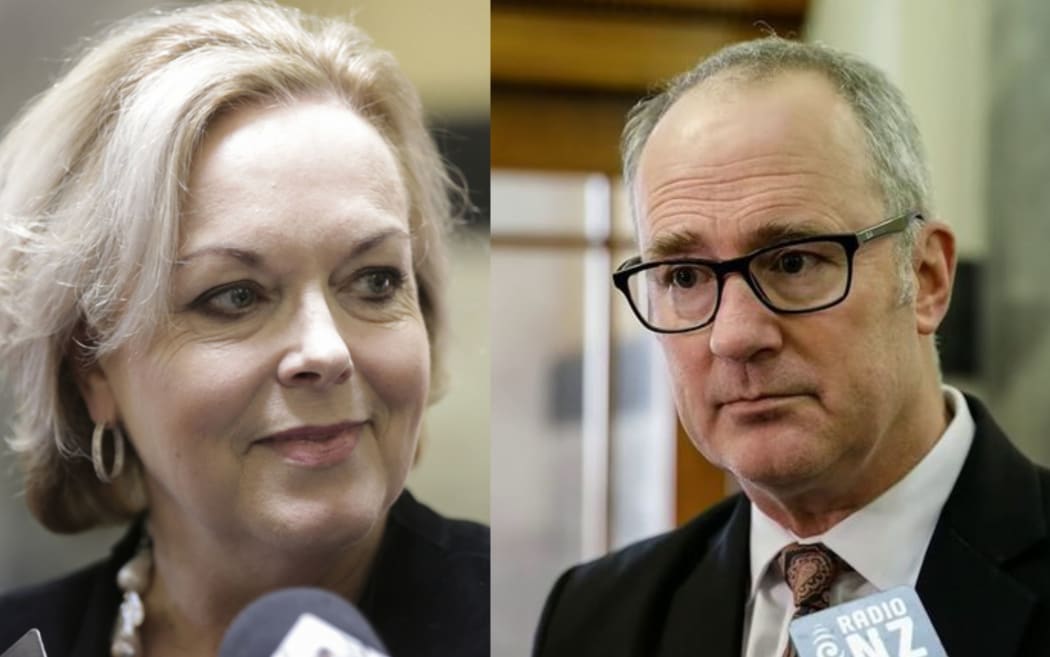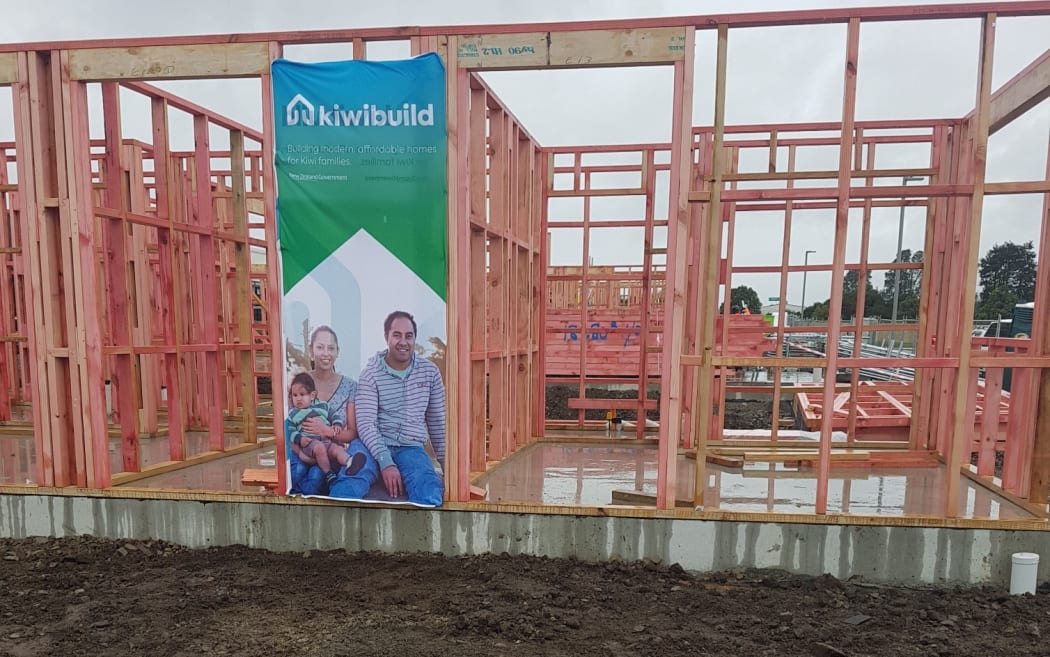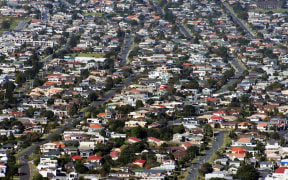Analysis - Rubbing salt in the KiwiBuild wound for Housing Minister Phil Twyford is the fact it's given Judith Collins the chance to attack him even before the political year is properly under way.

Judith Collins and Phil Twyford Photo: RNZ / Rebekah Parsons-King
The ambitious scheme was Labour's promised weapon to fix housing affordability while it was in opposition, where it ran a strong campaign against the inaction of the National government - spearheaded by Mr Twyford.
Neither John Key nor Bill English have acknowledged their failure to do enough to increase housing supply while in power, but the current leader Simon Bridges did made that admission soon after taking over the leadership.
National MP Judith Collins was given the job of taking on Mr Twyford and the housing portfolio and she's been handed plenty of fodder.
The minister has admitted that in the first year, the number of KiwiBuild houses actually completed is likely to be 300, well short of the 1000 target.
Not a great start for a government promising 100,000 houses over the next decade.
Mr Twyford blames the poor take-up of a partnership with industry to build cheaper homes off-the-plan; that was supposed to be a way to kick start the programme, and get houses built in numbers.
But developers say there are several problems or challenges that have made some reluctant to partner up with the government.
Some say dealing with KiwiBuild is a slow and bureaucratic process, not made easier by onerous consenting rules, and major delays in getting sign-off from local councils.
One said it took longer to get a consent than to actually build the house, which keeps the costs piling up.
An acute skills shortage in construction is another pressure point.

One developer said it took longer to get a consent than to actually build the house. Photo: RNZ/ Sophia Duckor-Jones
Mr Twyford also says the government has to "incentivise" the industry to change its business model, basically to build a greater number of cheaper houses off-the-plan. The idea was that having a common plan would speed up consenting and lower costs - of course that relies on having construction companies ready and willing to participate.
A developer who is working with the government in Auckland says the money has been at the higher end of the market with many developers building houses in the $700,000 to over a $1 million range.
In Auckland and Queenstown the price cap is $650,000 and $500,00 elsewhere.
According to the developer, that means a significant adjustment to the way houses are designed and built and until that happens, KiwiBuild will struggle to find industry partners for those off-the-plan homes, potentially for up to another year.
But it's not all doom and gloom with predictions the industry will be in much better position in the short to medium term, the initial factors holding up construction like securing land and design will not be such a problem, and the momentum will then pick up significantly.
None of that however is of any help to Mr Twyford right now, who not only has the 1,000 home target this year, but 5,000 by mid 2020 and 10,000 by the following year.
The further he falls behind this year the harder it will be to catch up and hit those future targets.
Prime Minister Jacinda Ardern is backing her minister but across the aisle Ms Collins is sharpening the knives.
Many of her predictions about the building programme have come to pass, undoubtedly to the gall of Mr Twyford, and his admission this week has guaranteed him a spot in the first question time of the year, when Parliament resumes in February.






